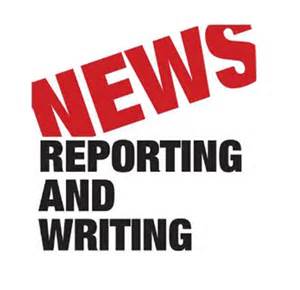International Reporting
主题目录
-
-
 InternationaI Reporting: Hone your ability to report and write breaking news and other important stories in clear, concise, compelling English.
InternationaI Reporting: Hone your ability to report and write breaking news and other important stories in clear, concise, compelling English.Professor Jim Wolf, wolfj@msn.com
Class meets twice a week, May 17 - June 8, 2017
Wednesdays: 6 pm to 9 pm, Building 1, Room #243 and 245
Thursdays: 8:15 am – 11:35 am, Building 4, Room #313
Office Hours: Thursdays, 2 pm - 3 pm am, Building 1, Room #260
Online classroom: elearning.shisu.edu.cn, “Advanced Newswriting”
-
-
Here's a way that we may "storify" Trump's fictitious tweets about his willingness to meet North Korea's leader.
-
Never start a story with a quote. Instead, summarize the information, then back it up with the quote in third or fourth para. Tighten up your story! In the original, you name the special South Korean envoy even before you name the new Korean president. That won't fly. The important news and names come first.
As always, avoid unnecessary words. Prune your copy for brevity. Use punchy language. Write in the past tense.
Consider this as an alternative:
-
South Korean president Moon Jae-in, said in tweets from Seoul today:
----
I've postponed indefinitely switching on full power of the THAAD anti-missile system
---
The system had been due to reach full operating capacity by October
---
I hope North Korea will join me in reducing regional tensions
----
I'm ready to discuss reciprocal peace moves with Kim Jong-un effective immediately
----
-
The second group report for the spring class is due at midnight on Tuesday, May 30. A rotating editor should submit the report, of up to 700 words, using contributions from each of the group's members. Each student reporter should be hunting for news in the area followed by her group. The trick is to confirm reported news by going back to official sources cited in the news reports whenever possible. This means checking the websites of organizations, companies or government agencies for relevant statements. If confirmation isn't available, you'd quote the published source. In addition, each group member must interview at least one expert about the significance of this week's news on the event(s) being covered. Seek scholars and experts at think tanks among others. Writer up their comments in a brief for the group's editor and submit it to the teacher as well via this website. The group's editor may string together different developments by using phrases such as: meanwhile, at the same time, in another development etc. Each week a new editor will take charge of the group's report. The most important news of the week should be in the story's lead, as we've discussed in class. The group's rotating editor alone must file the finished product to the website, taking care to identify the group's topic and its members in the body of each submission. Submissions must be by on online text, not by uploaded or downloaded document. The group's editor is responsible for writing a short, sharp headline for the group's report each week. Individual students may submit their contributions via the web site for the record only, but are not required to do so. The group's work will be graded, not each individual's contribution, in a reflection of the importance accorded by editors to reporters combining their talents for the benefit of readers and the public.
The groups are following news in these areas:
-- Sino-U.S. relations
-- Cybersecurity
-- One Belt, One Road Initiative
-- China-Korean relations
-